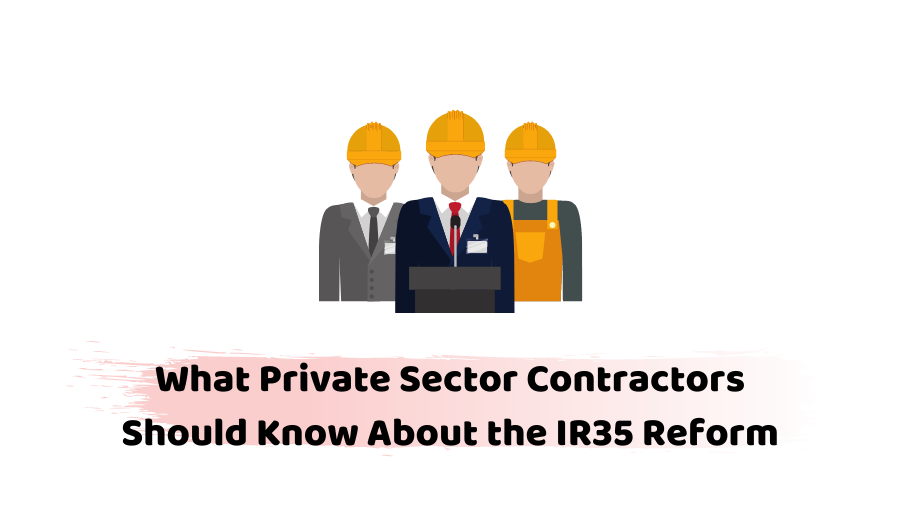HM Revenue and Customs (HMRC) rolled out IR35 reform in April 2017. The reform initially applied to contractors working in the public sector. However, recently the HMRC has decided to extend the tax reform to the private sector, and it’s expected to be implemented in April 2019.
If you are a private-sector contractor, you should consult with one of the professional contractor accountants in UK to understand how the introduction of IR35 in the private sector will affect your income. Here, you will learn what the IR35 tax reform exactly is and how it will affect you when implemented next year.
IR35 and the Private Sector Contractors
The IR35 reform was introduced to the public sector amid a lot of controversies. It shifted the onus of assessing tax status from contractors to public sector bodies, including public schools, higher education, armed forces, police, councils, and the NHS.
HMRC has cited that after the IR35 reform was introduced to the public sector, 58,000 more contractors are now paying taxes and insurance to the government. The agency claims that this has resulted in additional tax revenues of £410 million per year. That’s why it is now targeting the jackpot — private sector contractors.
Despite heavy criticism, the HMRC decided to extend the IR35 reform to the private sector. It started a consultation process last month to find out how to best extend the reform in the private sector.
Criticisms Against HMRC’s IR35 Reform
Independent contractors have heavily criticized the IR35 reform. They argue that they don’t receive benefits and perks that are offered to regular employees. As a result, they should not be taxed as regular employees. Taxing individuals who offer their services as independent contractors without offering them benefits similar to those offered to regular employees seems to be grossly unjustified.
However, it seems that the HMRC views public and private sector contractors as a bunch of tax avoiders. According to Chancellor Hammond, it’s unfair that self-employed individuals earning £100,000 a year should be taxed less than employed individuals who earn the same amount. The government wants to remove this ‘unfair anomaly’ in the private sector by introducing IR35 off-working employees’ tax reform next year.
After the extension of the IR35 tax reform to the private sector, private companies will be required to assess whether a contractor that they had hired falls within the IR35. A contractor whose services fall within the tax rules will have to pay taxes and insurance contributions similar to those paid by regular employees.
How Can Private Sector Contractors Prepare for IR35 Tax Reform?
If you work as a contractor in the private sector, important advice regarding the IR35 reform for you is to make changes in the contract terms and agreements and work practices to ensure that you will pass the IR35 test.
You should consult with one of the experienced accountants for contractors to know what changes you should implement that will help you pass the IR35 test. Taking professional advice will ensure that the changes that you make in the contract terms don’t violate any law. It will help you to avoid paying a hefty fine for trying to avoid taxes using shady practices.
Furthermore, you should also take HMRC’s online Check Employment Status for Tax (CEST) test to find out whether the IR35 tax reform that is expected to be introduced next year in April applies to your engagement with the private sector. You will be asked a series of questions and then based on your input, the CEST tool will recommend whether or not the IR35 rule applies to your engagement.
Taking the test will allow you to know your status in the eyes of the HMRC. You should take this test before taking the official test of your client. If you require expert advice regarding the test, you should contact one of the experienced accountants for contractors in UK.
Conclusion
Private-sector contractors should hope for the best regarding the upcoming IR35 tax reform, but also prepare for the worst. It’s important to consult with professional contractor accountants to know about the implications of the tax reform that will be implemented next year.
Experienced contractor accountants have in-depth knowledge about tax-related matters. You can know about the tax implications if you are deemed to be inside the IR35 tax reform. This will help you to best prepare for the reform, and avoid paying hefty taxes to the government.





















































